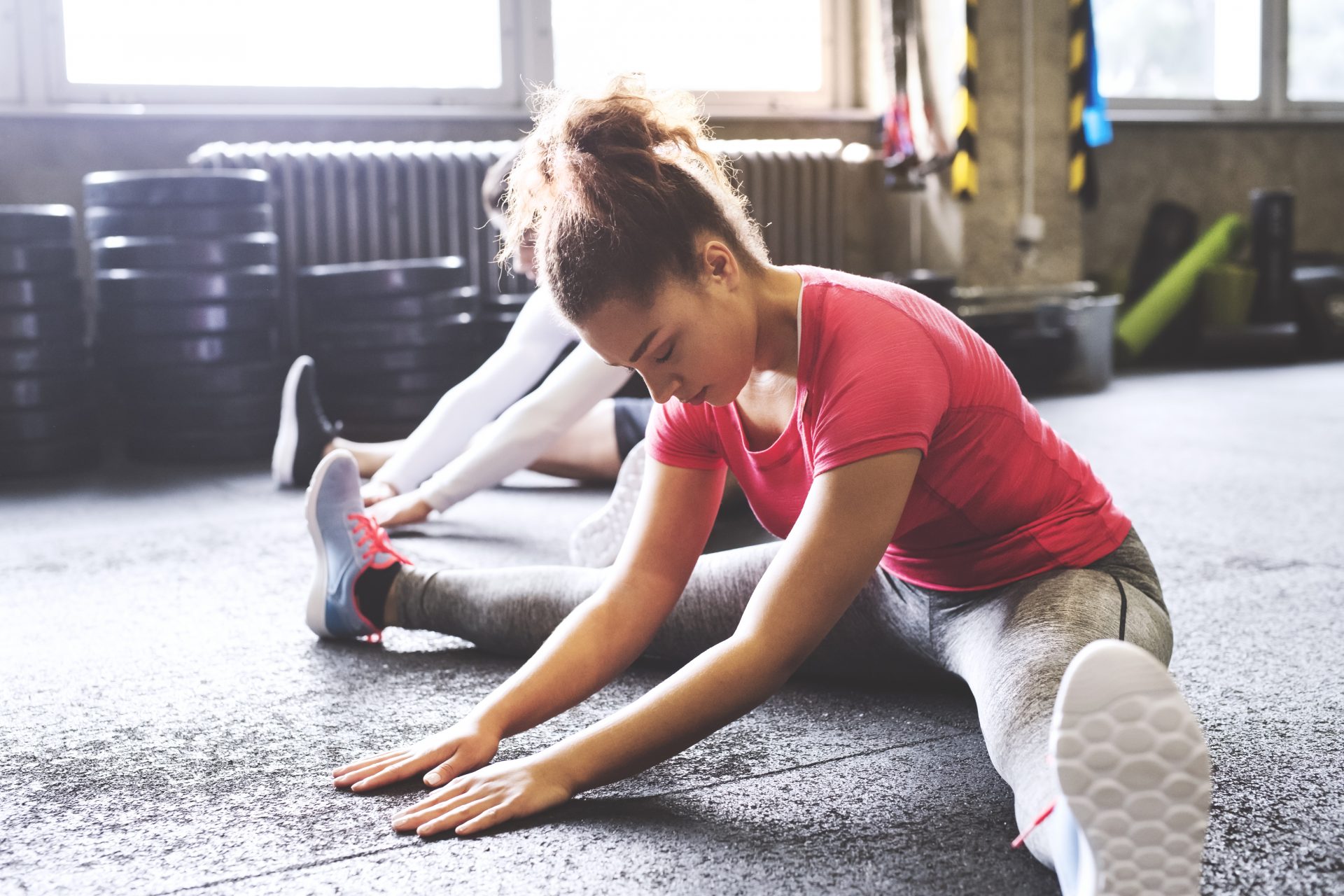Running doesn’t have to be hard – here are 16 tips to make it more enjoyable
We asked the Strong Women readers and trainers for their top running tips. Read this if you’re struggling to go further or faster.
Let’s be honest here: running is hard. It’s difficult to motivate yourself to get outside and it’s even harder to increase our distance and to up our pace when the skies are dark (again) and the pubs are now open. That doesn’t mean giving up on running though – especially after you dedicated so many months to it during lockdown. Instead, you’ve got to start training smart.
Whether you’re a beginner, have been running for months but have hit a plateau or are struggling to nail your form, there are little tweaks you can make that will have a big pay off.
You may also like
Running for beginners: these 5 top tips will make your next run easier
In fact, there are almost too many tips out there with ways to make you a better runner. We turned to our Strong Women Community, including expert trainers and our readers who are avid runners, to share how they make running feel a little more effortless. Here’s what they had to say:
1. Getting the right playlist
Undoubtedly the number one tip we were given was getting the right soundtrack for your run. Science would agree. New research by the University of Edinburgh compared those running before and after doing a mentally challenging task. Researchers found that those who ran after the task could perform at the same level, so long as they were plugged into their favourite music. They concluded that music can combat mental fatigue when exercising.
“I need a music track that takes me the extra mile,” says one Strong Women reader on Instagram, while for Emma Obayuvana, trainer from the Strong Women Collective, it’s the beat that’s key: “I tend to choose songs that have a bpm of 128 or slightly higher, as this really helps with my pace. I usually have a dance party in my head when I run!”
2. Following a plan
Rather than jumping straight into half an hour runs, it’s important to build up your stamina and speed. Whether it’s Couch to 5K, the Garmin training plan or a weekly schedule you set yourself, having some guidance can really help.

3. Wearing the right trainers
“The one thing that made running better for me was having a gait analysis and wearing custom insoles,” says another reader. According to Asics, 81% of us could be wearing the wrong shoes, which can result in discomfort, pain or injury.
If you’re in the market for a new, sturdy pair, find our tried and tested favourite running shoes on Stylist.co.uk.
4. Breathing properly
There is no worse feeling than struggling to catch your breath, so mastering your breathing is a great way to feel more in control of your training. “Learning to breathe in through the nose for a count of three and out through the mouth for a count of three made running easier for me,” says a member of the Instagram community. Not sure where to start? Read our guide on how to breath when running for expert tips.
You may also like
Not sure how to breathe when running? 5 tips to improve your run
5. Warming up
It might sound obvious, but so many of us go straight from desk to pavement, then wonder why we are struggling. “The best thing you can do before running is to prepare your body properly,” says personal trainer and athlete Risqat Fabunmi-Alade. “Whether that’s foam rolling, doing dynamic stretches or some running drills, it’s better to do something than nothing. A good warm-up relaxes stiff muscles and joints, gets you mentally ready, improves performance and reduces injury risk.”
6. Strength training
To get better at running, you don’t just need to improve your cardiovascular fitness – you also need to strengthen the muscles, joints and bones that carry you through the run. We recommend lower body lifts that target the glutes and quads, but if you don’t know where to start then check out the Strong Women strength training for runners guide.
You may also like
Strength training: 6 lower body exercises to make you a better runner
7. Finding a friend
“I actually hate the idea of running with people, but every time I do it I always feel so good,” says digital writer Hollie Richardson. “It pushes me to keep going (maybe that’s why I actually dread it beforehand?), there’s something nice in knowing that you ‘did it’ together and the people I run with are always so encouraging.”
Running with a buddy was one of the most popular pieces of advice we’ve received. In these times, why not try virtually running alongside someone by tracking your runs and sharing with each other?
8. Upper body form
It’s not about powering those legs forward – keeping the correct posture is essential too. “People hold their arms very stiff while running, either at the shoulder or elbow joint or, on the flip side, a few people bring their arms right across their body causing their torso to swing side to side. Instead, on each stride brush your hand by your hip, passing backwards and forwards. This should encourage your elbow to bend and straighten, improving general arm swing,” says Risqat.
9. Stretching
Running regularly is tough on the body, so it’s important to allow yourself to rest and recover. An important part of that is stretching, releasing tension that builds up from the pressure of your foot strike and improving range of motion through the hips, which take on a lot of work during running.
A kneeling hip flexor stretch is a great way to end the run:
- From standing, step one foot back and lower your back knee to the ground so you are in a low lunge position.
- Keeping your body up straight and without arching the back, slowly lean forward to feel the pull through the front of your back hip.
- To make it more intense, grab your back foot and pull the heel in towards your glute.
You may also like
Stretching: 4 stretches to support muscle recovery and prevent injury

10. Having the right kit
“Choose something that you not only feel good in but also something that you don’t need to fuss with once you start running,” says Emma. “You need leggings that don’t slide down as you jog, a top that doesn’t ride up and a sports bra that is tight enough to keep things in check.”
11. Getting a good book
While music might be preferable to some, others need more of a distraction while they run. Listening to podcasts or audiobooks is perfect for this, as you can get lost in a great conversation and not have your pace influenced by the beat of songs. We love listening to podcasts about fitness to inspire us or tuning into a memoir that we can be totally absorbed by.
12. Go somewhere quiet
“My number one tip would be making the effort to run somewhere that you won’t be slowed down by traffic lights or lots of people,” says Stylist’s senior digital writer Megan Murray. “Running in Dalston used to be painful because I’d already had to gear myself up to go out and then I was dodging people constantly (which didn’t help my breathing or setting a pace) and stopping every two minutes for roads, which made it feel like an even bigger ordeal. Now I run in the countryside I can concentrate on me.
“Obviously if I was still running in east London I wouldn’t have the same exposure to the countryside, but I could have got a 10 mins bus to a local park which would have been better than Stoke Newington Road – I just didn’t think about what a difference it would make.”
You may also like
Is audio fitness the new workout trend that will help you hit your goals?
13. Making it work for you
“If you’ve had a long day at work, going for a run in the evening probably isn’t going to be fun,” says runner and personal trainer Tashi Skervin-Clarke. “Why not optimise your running by going on the days where you feel energised and rested? Try to plan your runs in advance and don’t be afraid to swap around running days to fit your schedule too.” This was echoed by Strong Women reader Jackie, who says that “just doing it [when I want to] as opposed to when people tell me I should” made running more enjoyable for her.
14. Tracking your run
Using your phone or a smartwatch can take some of the guesswork out of your run – a quick glance at your wrist will show you how far you have left of your planned route and show whether you’re being consistent with pace. Being able to look back at your tracked runs to see how you’re improving can also be a huge motivator.
15. Going slow
“Going slowly rather than chasing PBs”, “running slowly for the first KM”, “going slower and focusing on the feeling”, “not caring about pace and not comparing yourself to others” – just some comments that the Strong Women readers shared. So, stop being so competitive and just allow yourself to enjoy the training.
“We often put so much pressure on ourselves when we run. Speed doesn’t dictate if we’re having a good run or not,” agrees Tashi.
16. Keeping your head up
“I always remember Jo Whiley’s tip that she shares on Couch to 5K,” says entertainment director Helen Bownass. “Imagine someone is on the other side of a hedge from you when you’re running. They shouldn’t be able to tell if you’re running or walking – i.e. you shouldn’t be moving your head wildly. Slow and steady is the key!”
TRY OUR STRENGTH TRAINING FOR RUNNERS PLAN AT THE STRONG WOMEN TRAINING CLUB
Attention all runners, joggers and plodders: start your 14-day free trial at the Strong Women Training Club and join us for four weeks of Strength Training for Runners! Over the course of the plan, you’ll strengthen key running muscles, improve core control and work on any imbalances that may be causing injuries. It’s all bodyweight focused so don’t worry about having to buy any equipment. If you decide it’s not for you, you can cancel after 14 days without spending a penny. Get ready to run stronger!
Follow @StrongWomenUK on Instagram for the latest workouts, delicious recipes and motivation from your favourite fitness experts.
Images: Getty
Source: Read Full Article
